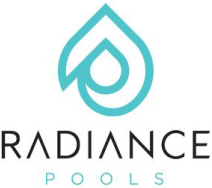Tip 1: Test and balance your water chemistry regularly.
The pH level of your pool water is a measure of its acidity or alkalinity. The ideal pH level for a pool is between 7.2 and 7.6. A pH level that is too low or too high can make it difficult for chlorine to work effectively, which can lead to algae growth and other problems.
The chlorine level of your pool water is a measure of the amount of chlorine in the water. Chlorine is used to disinfect the water and kill bacteria and algae. The ideal chlorine level for a pool is between 1 and 3 ppm.
You can test your pool water chemistry with a pool test kit. Pool test kits are available at most pool supply stores.
Once you have tested your pool water chemistry, you can adjust the pH level and chlorine level as needed. You can add chemicals to your pool water to adjust the pH level and chlorine level.
It is important to test your pool water chemistry regularly and adjust the pH level and chlorine level as needed to keep your pool clean and clear.
Tip 2: Skim, brush, and vacuum your pool regularly.
Skim your pool daily to remove any floating debris. This includes leaves, insects, and other small objects. You can use a skimmer net to skim your pool.
Brush your pool weekly to remove any algae or dirt that has settled on the sides or bottom of the pool. You can use a pool brush to brush your pool.
Vacuum your pool weekly to remove any dirt or debris that has sunk to the bottom of the pool. You can use a pool vacuum to vacuum your pool.
It is important to skim, brush, and vacuum your pool regularly to keep it clean and clear.
Tip 3: Run your pump and filter for at least 8 hours a day.
The pump and filter are responsible for circulating the water in your pool and removing dirt and debris. Make sure to run your pump and filter for at least 8 hours a day.
The pump circulates the water in your pool, while the filter removes dirt and debris from the water. The pump and filter work together to keep your pool clean and clear.
If you do not run your pump and filter for at least 8 hours a day, the water in your pool will become dirty and cloudy.
Tip 4: Shock your pool once a week.
Shocking your pool is a way to kill algae and other microorganisms. You can use chlorine shock or non-chlorine shock to shock your pool.
Chlorine shock is a strong chemical that kills algae and other microorganisms. Non-chlorine shock is a less harsh chemical that can also be used to kill algae and other microorganisms.
It is important to shock your pool once a week to keep it clean and clear.
Tip 5: Keep your pool covered when not in use.
Keeping your pool covered when not in use will help to prevent dirt and debris from getting into the water. You can use a pool cover or a tarp to cover your pool.
A pool cover will keep out most dirt and debris, while a tarp will keep out some dirt and debris.
It is important to keep your pool covered when not in use to help keep it clean and clear.



